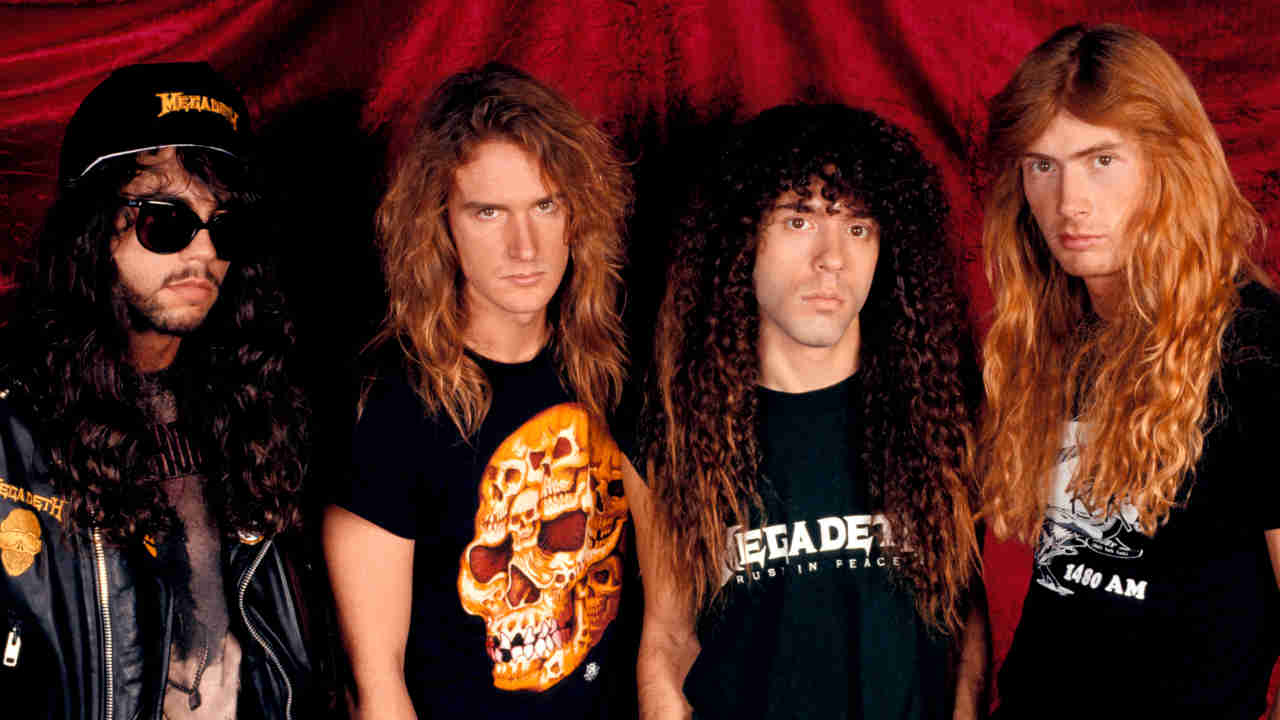Coheed And Cambria break their silence
For 13 years, prog rockers Coheed And Cambria have been singing about their sci-fi saga, The Amory Wars. Now, for the first time, Claudio Sanchez is opening up about his own universe...
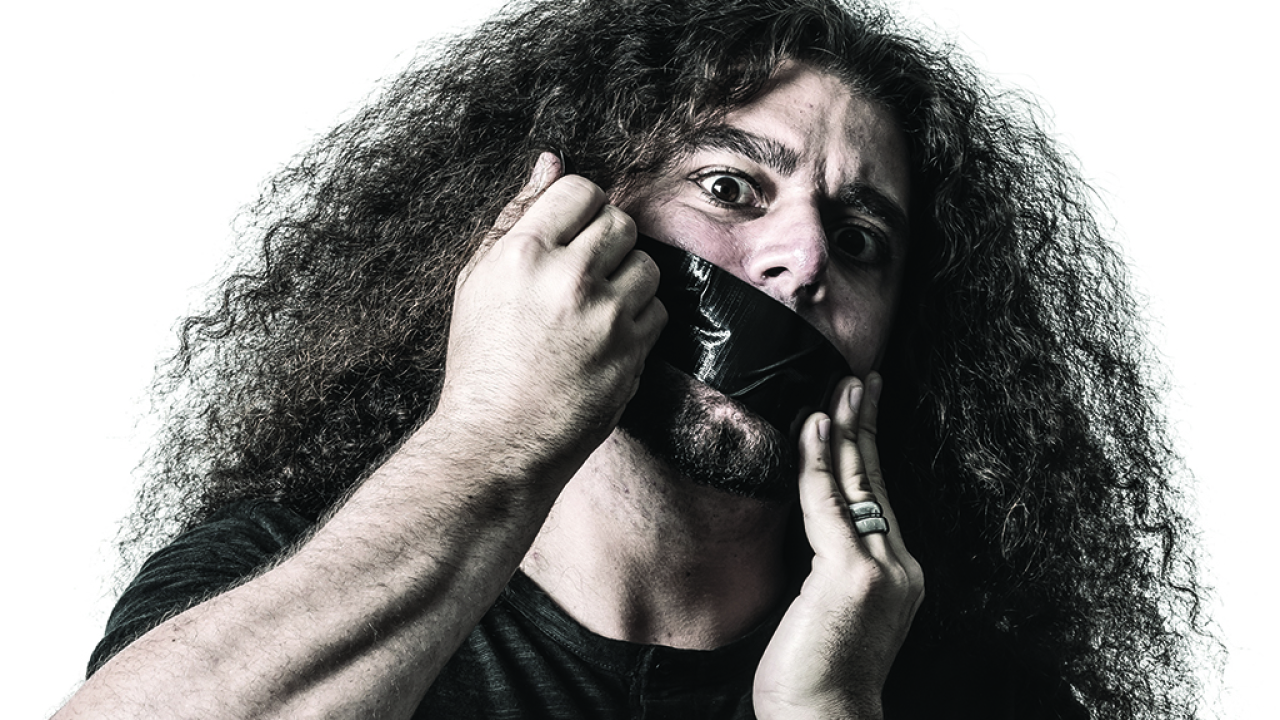
Select the newsletters you’d like to receive. Then, add your email to sign up.
You are now subscribed
Your newsletter sign-up was successful
Want to add more newsletters?

Every Friday
Louder
Louder’s weekly newsletter is jam-packed with the team’s personal highlights from the last seven days, including features, breaking news, reviews and tons of juicy exclusives from the world of alternative music.

Every Friday
Classic Rock
The Classic Rock newsletter is an essential read for the discerning rock fan. Every week we bring you the news, reviews and the very best features and interviews from our extensive archive. Written by rock fans for rock fans.

Every Friday
Metal Hammer
For the last four decades Metal Hammer has been the world’s greatest metal magazine. Created by metalheads for metalheads, ‘Hammer takes you behind the scenes, closer to the action, and nearer to the bands that you love the most.

Every Friday
Prog
The Prog newsletter brings you the very best of Prog Magazine and our website, every Friday. We'll deliver you the very latest news from the Prog universe, informative features and archive material from Prog’s impressive vault.
When you see musicians standing onstage in front of thousands of people, all of whom are totally in awe of them, it’s easy to fall into the trap of believing that they’re the luckiest people on Earth.
That they’re free from the worries that affect your average Joe. But that isn’t always the case; like any one of us, they have responsibilities to live up to, expectations they set for themselves, and obstacles to overcome.
“The touring lifestyle,” sighs Coheed And Cambria frontman Claudio Sanchez, reflecting on the path he’s chosen through life. “I know from an outside perspective it doesn’t look like much work. But emotionally, it’s tough. I’m lucky that I have FaceTime so I can see my son, but when my wife shows me him walking… he wasn’t walking before when I left, and I just missed that… It’s tough… sorry…”
At this point, Claudio’s voice cracks with emotion, and he’s close to tears. It’s not something you expect from a chat about a band’s new album, never mind from the singer of a group as notoriously guarded as Coheed And Cambria. Over the last 13 years or so, they’ve written seven albums based on Claudio’s self-penned, science-fiction-style conceptual narrative, The Amory Wars, while combining a love of progressive rock with pop sensibilities. It’s a strategy that’s made them one of the biggest cult bands in the world of rock. Coheed fans hold the band in such high esteem that The Amory Wars has taken on a life of its own, spawning graphic novels and, at one point, even whispers of a movie adaptation.
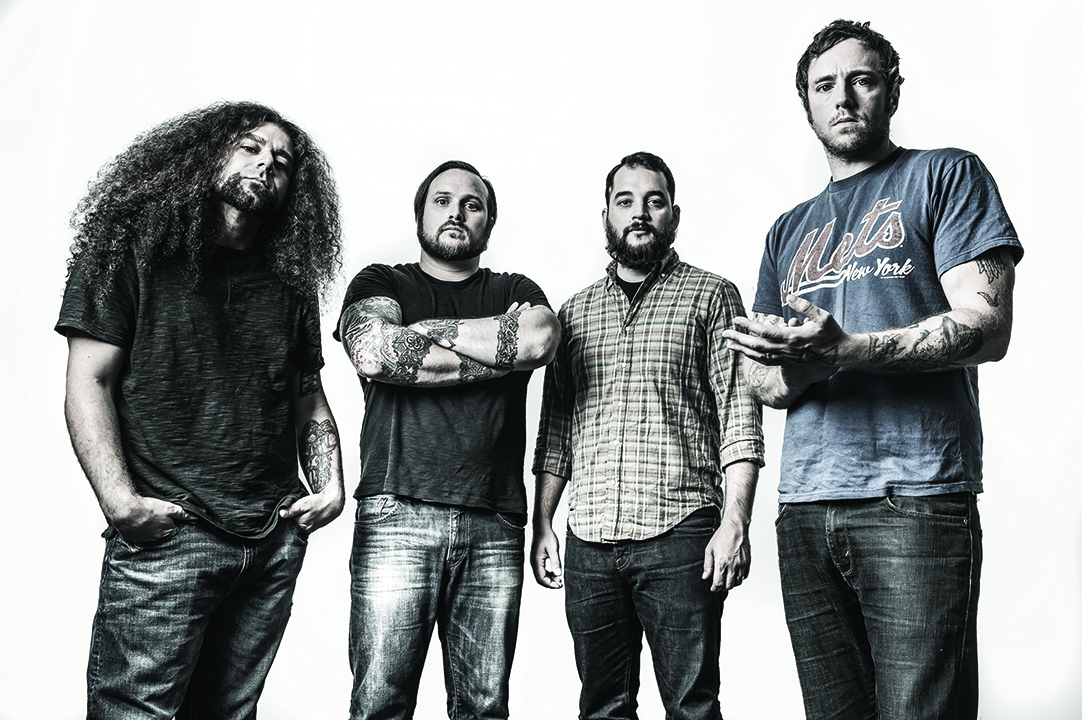
But the band’s latest album, The Color Before The Sun, explores distinctly personal territory, including a tribute to Claudio’s then-unborn son, Atlas, along with expressions of love, guilt and sadness. When Claudio started writing it, he didn’t even know he was creating a Coheed record. He was trying to deal with some tough emotional struggles in his head, and was subsequently confronted with the looming milestone of parenthood.
“I think I had a real identity crisis,” Claudio recalls. “And I started to think about my own childhood, and being a young adolescent and a creative individual, and having no limitations or expectations on yourself. So I think a lot of that spilled into the lyrics. Then I found out my wife was pregnant, and so I started thinking about what kind of
father I was going to become, and the inevitability of me having to leave that person that I had brought into the world because of this lifestyle. So you just have all of these insecurities…”
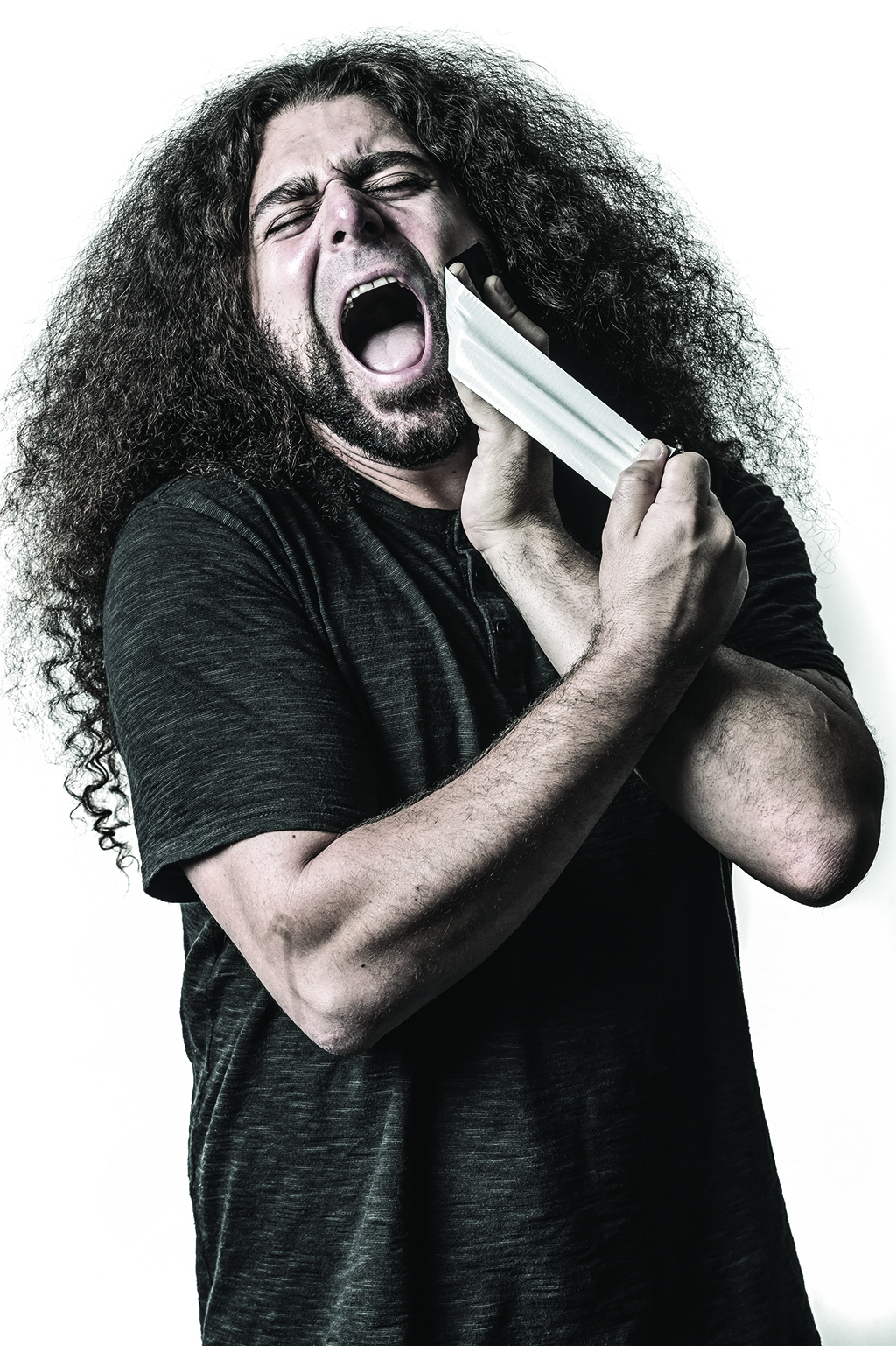
As Claudio was trying to make sense of everything, he and his wife decided to move from their country home in Upstate New York to the more urban Brooklyn Park. The couple were happy there, but the singer says he was struggling to create – a feeling that came out in the music.
Sign up below to get the latest from Metal Hammer, plus exclusive special offers, direct to your inbox!
“I was working in an apartment environment, and I was so used to working in seclusion, so I felt super exposed,” explains Claudio.” I think a little bit of that exposure seeped into the music; it got a lot more honest and just reflected
the turmoil of the time. I think I just wanted to honour that.”
He tails off for a second, before revealing the most incredible twist that has led Claudio Sanchez and Coheed And Cambria down their most recent road – the couple’s decision that they would move back to the country once their son had arrived. It turned out that the people they’d been renting their house to had turned it into a grow house, planting thousands of dollars’ worth of cannabis under their roof.
“I couldn’t believe it,” says Claudio today, shaking his head in disbelief. “We were like, ‘He’s coming and we have the lease coming up on our apartment and… what are we going to do?’ My wife got a text the day before [the agents] were about to do the yearly walk-through, and it’s like, ‘Somebody has broken into the house, we’re not going back in there.’ We phoned the police, who told us that no one had been living there for a year and, there’s no evidence of it, but it smells like marijuana. We get up there, and you can see the floor where all the plants had been growing, and the police suspect that it’s, like, a $300,000-a-month operation.”
Not only did the couple have to deal with the sadness of seeing their home in disarray, and the worry that they’d be left without a place to live, but they were then subject to scrutiny about whether they had played a part in the enterprise.
“The insurance claim was taking forever, and it turns out that they suspected my wife and I, and were just trying to pin it on us!” Claudio remembers. “We had to be questioned and sequestered at the same time. So you feel like criminals! And now we’ve come full circle, because we’re moving back to Brooklyn; we can’t take it there.”
The chorus of the song Colors is about that point where the couple found out their house had been destroyed. Claudio softly sings: ‘And when the world comes crashing down / Don’t make a move don’t make a sound / Just watch it fall, watch it come down and feel it as it goes / Does it feel good to let go?’ The event looms large on the record, and inspired its creation.
“I just thought to myself, ‘Here I am, this is probably the first record, the only record, where I’m going to experience these things’, you know? Pre- and post-fatherhood, this is a new phase of my personal life. So why not make it a new phase of Coheed And Cambria’s life as well?” explains Claudio. “I’m usually super nervous in those sorts of situations, but this felt like the house made the decision for us. When shit started going wrong, I just felt this eerie sense of calm. And it was at that point that it made sense for it to frame what this record was going to be.”
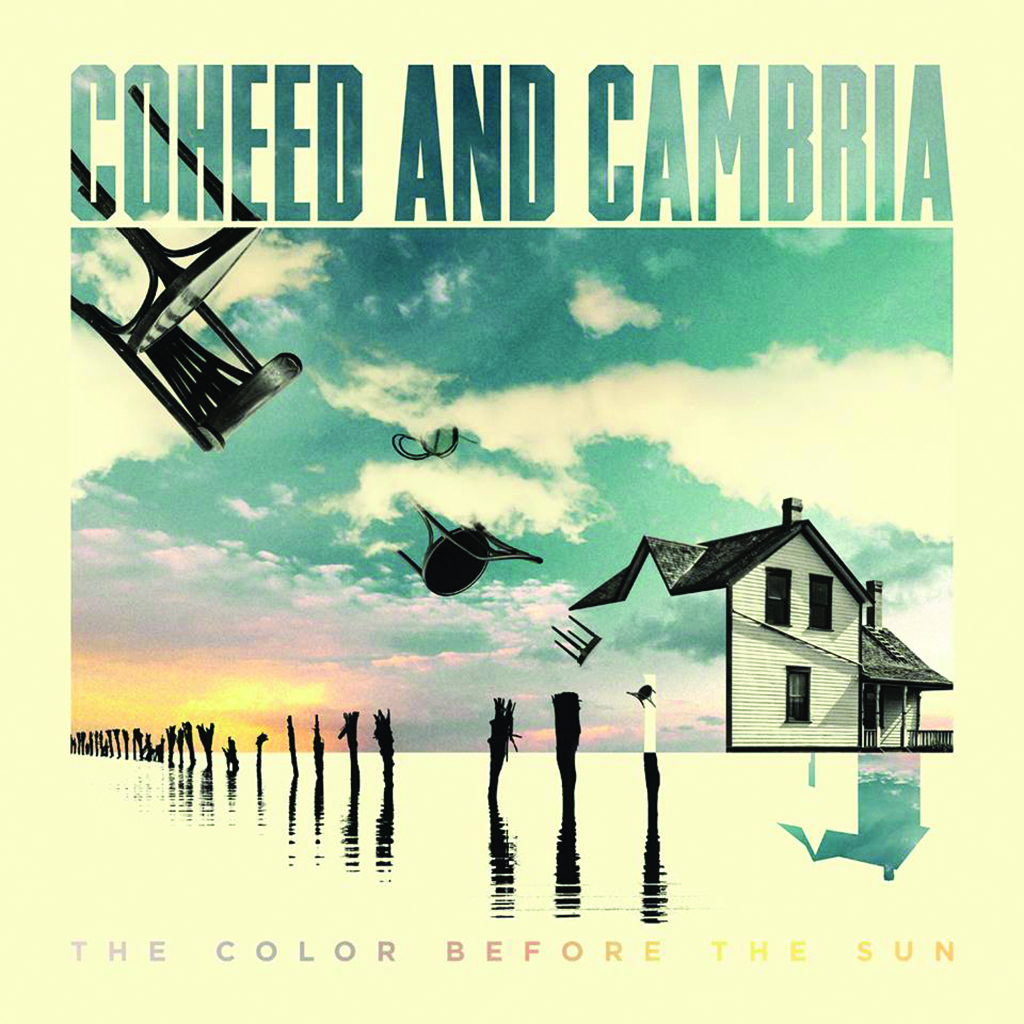
It’s not only a unique choice, but also a brave one. How often do bands a decade into their career decide to take a stylistic left turn and go out of their comfort zone? It required a mental leap for Claudio’s band-mates, who’d grown used to stories of planets.
“I was kind of shocked, but, when I heard the story about the house, I thought it was great,” says drummer Josh Eppard. “I know a lot of people are painting this as our first personal album, but you only really have to listen to our older albums… Claudio isn’t the closed book people paint him as. There are personal things on those records, too.”
But where there are private thoughts, they remain buried in story. Claudio created The Amory Wars to cloak his thoughts and prevent his feelings from being exposed.
“I couldn’t have made this step without those events [of the house] happening,” Claudio says. “The reason I invented the concept is because I was so introverted that I didn’t want to be judged. I wanted my music to be judged, but me as a person to be kept away from it. When I originally composed these songs, I didn’t think it’d be a Coheed album. But then we always wanted to have no limitations on our music, so this was just another way for me to think, ‘Why should this be any different?’ We never boxed ourselves in to a certain musical genre, or limited the type of bands that we’d play with on tour, or the type of label that we would sign to… So why not this now? Now, with 37 years of my life and my son, I don’t care about what people think! I’ve got to a place where I’m a lot more secure in who I am. I don’t need this mask to hide behind anymore.”
Fatherhood suits Claudio. He’s gone through a huge amount of upheaval in a short space of time, and doesn’t yet know how it’ll affect him, the band or his future. The difference is he’s now comfortable exposing intimate feelings. The man who expresses such warm sentiments about his family today is a world away from the man who’s always hidden behind made-up characters.
“As an artist and a creative part of this band, I don’t know fully yet how [this record] will end up changing me,” he muses. “But the confidence factor… I now have something that I have to take care of. That changes you. And love becomes a different thing. I love my wife more than anything. She is as much a part of this band and my process as anyone. But the moment my son came into this world… I don’t know that I’ve ever felt love that deep.”
Claudio, it’s a pleasure to finally meet you.
*The Color Before The Sun* is out on October 16 via 300 Entertainment

A War Of Words
*With The Color Before The Sun, Coheed are taking a break from their sprawling sci-fi saga.*
The Amory Wars concept was originally conceived as a science-fiction comic named The Bag On Line Adventures, before being renamed to act as a story told throughout each of Coheed And Cambria’s albums, starting with debut The Second Stage Turbine Blade [2002]. It tells of a couple named Coheed and Cambria Kilgannon’s struggles against dictator Wilhelm Ryan, in a group of 78 planets named Heaven’s Fence, which are all interconnected by beams of energy known as The Keywork. Each subsequent release has acted as a chapter in the story,
If it all sounds a bit complicated… well, it is, but it hasn’t stopped The Amory Wars becoming a cult favourite, published by Claudio’s own Evil Ink Comics company. In 2012, Claudio Sanchez even revealed that he’d teamed up with Mark ‘Marky Mark’ Wahlberg and his affiliated production company Leverage (Entourage, Boardwalk Empire), to turn it into a live-action movie.
Is this the end for The Amory Wars story, or just a break? As Claudio said, the band have never put any limitations on their art, so we wouldn’t be surprised to see them revisit it in the future…
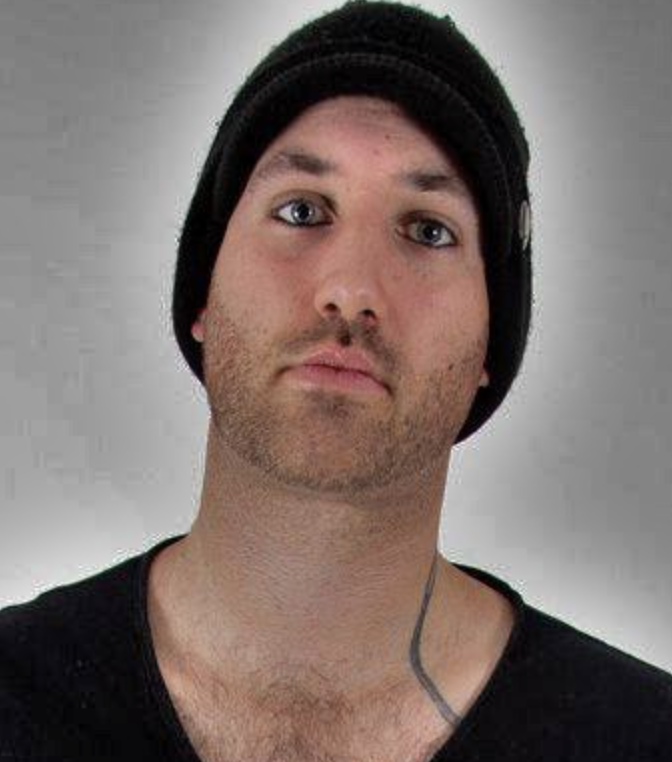
Stephen joined the Louder team as a co-host of the Metal Hammer Podcast in late 2011, eventually becoming a regular contributor to the magazine. He has since written hundreds of articles for Metal Hammer, Classic Rock and Louder, specialising in punk, hardcore and 90s metal. He also presents the Trve. Cvlt. Pop! podcast with Gaz Jones and makes regular appearances on the Bangers And Most podcast.
